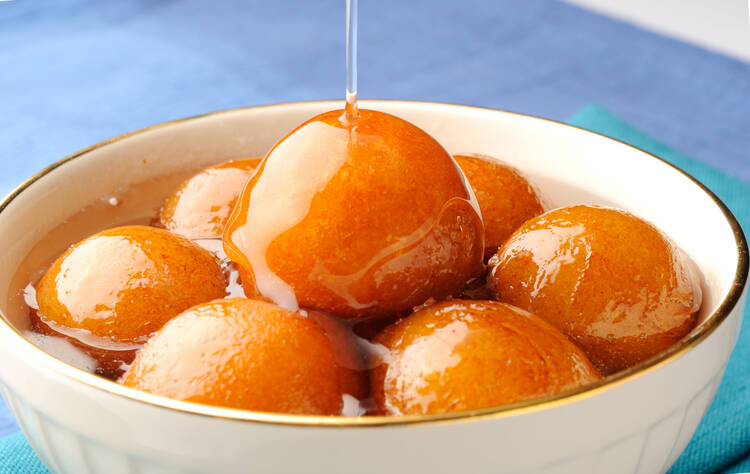Most of us know the Tuesday before Lent as a day for festivities and carnivals, with several well known celebrations in Brazil, Trinidad and, of course, New Orleans. Even in Belize, where I once lived, the island of San Pedro celebrated with a carnival on Fat Tuesday. But my own reasons for looking forward to the day were a bit different: For me, it was Pancake Day.
Until the age of 10, I grew up in Georgetown, Guyana, as the only child of an English father and Guyanese mother. My mother was Guyanese of colonial British and Portuguese (and Chinese) ancestry, and so my traditions and food at home were an eclectic mix of Guyanese and British. (I attribute my fondness for Marmite to my father.) I particularly looked forward to that Tuesday before Lent, because my mother made a particular treat only on that specific day: traditional Guyanese pancakes.
The tradition of Pancake Day seems to have originated in Britain and the term is a common nickname for Shrove Tuesday. The tradition of Shrove Tuesday goes back to the early Middle Ages, shrove being derived from the word shrive, an old English word that denotes absolution from sins after confession. Shrove Tuesday was the last day on which one could eat rich and indulgent foods such as cakes and other sweets before the 40 days of fasting and abstinence for Lent. Over time the tradition of eating a pancake breakfast to mark the day became popular.
Growing up, I was never quite sure about my mom’s “pancakes,” especially as she maintained the tradition when we moved to Belize, where it was not widely observed. I loved the treat but often was unsure why they were even called pancakes, as they barely resembled the traditional form. Instead of the flat, round “American style” pancakes that I could get in restaurants, the pancakes that mom cooked up on Pancake Day were round dough balls that were fried and then soaked in a delicious homemade syrup.
I knew that the tradition also existed in Britain, and I remember discussing Pancake Day with my friend Nicole, who reminisced that while growing up in England her mother would always make crepes on Pancake Day. I had of course asked my mother why she called these round syrup-soaked bits of dough pancakes, but she just shrugged and said, “That’s what Grandma taught me to make on Pancake Day.” They were traditional, and that’s all she knew. They were delicious, and that’s all I cared about.
Since she made them only once a year, my mother would always make enough to share, and I would often offer them to friends, adding that yes, they were the traditional Guyanese pancakes, and no, I don’t know why they are not actually pancakes.
My mother died in November of 2020 and her Pancake Day tradition is among the fond memories of her that I cherish. Sadly, I never learned how to make either the dough or the homemade syrup. But I have missed them and have decided it’s never too late. I googled “Guyanese Pancakes for Pancake Day” and, lo and behold, the internet responded with blogs with information, recipes and photos. The photos were important, as they confirmed that this is indeed what I remembered. I also found out that the “pancakes” are derived from a Portuguese treat, malasadas, brought to Guyana by indentured Portuguese workers and incorporated into the local Shrove Tuesday tradition: Pancake Day. My mother knew it simply as what her grandmother had taught her.
I never met my great-grandmother, but I do remember seeing a couple of photos of her, including one of her with a stack of rum barrels on a plantation. She was Portuguese, which explains the connection to the malasadas.
I have yet to try any of the recipes, but I think I will start with one that seems closest to what I remember from my childhood. The syrup especially seems right, although I remember maybe star anise in it as well. The good news is that recipe variations abound, and so every Shrove Tuesday I can try a new one, honor my mother’s tradition, and have fun trying to replicate the taste I so fondly remember. Happy Pancake Day!








